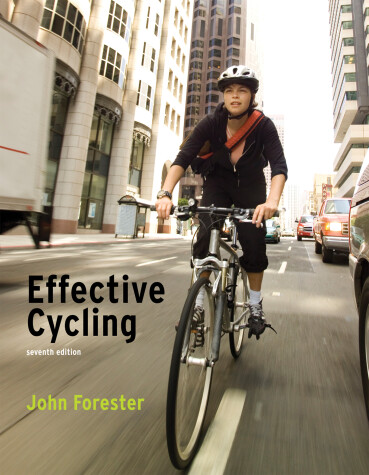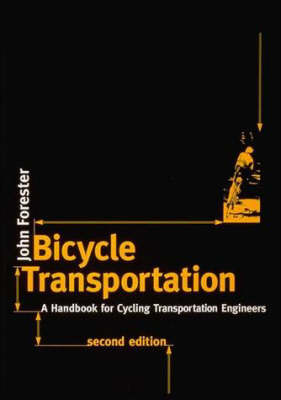The MIT Press
2 total works
Effective Cycling is an essential handbook for cyclists from beginner to expert, whether daily commuters or weekend pleasure trippers. This thoroughly updated seventh edition offers cyclists the information they need for riding a bicycle under all conditions: on congested city streets or winding mountain roads, day or night, rain or shine. It describes the sheer physical joy of cycling and provides the nuts-and-bolts details of how to choose a bicycle, maintain it, and use it in the most efficient manner.
Effective Cycling covers the bicycle itself, repairs and maintenance, basic and advanced cycling skills, and how traffic is organized. It describes cycling with friends, bicycle tours, increasing physical endurance, racing, and even finding a cyclist as marriage partner. Throughout, author John Forester emphasizes that cyclists should consider themselves drivers of vehicles in traffic. That means obeying the rules of the road, because when all drivers obey the same rules, they don't have collisions. Forester explains why cyclists should not be afraid to cycle in traffic, and he urges them to resist being shunted off into government-sponsored bike paths as if they were incompetent children. Cyclists fare best, he says, when they act and are treated as drivers of vehicles.
Effective Cycling will help owners of bicycles dusty from disuse become active cyclists and veteran cyclists improve their techniques and achieve their cycling goals. Each section moves from basic to advanced topics; readers are encouraged get on a bicycle and practice each activity after reading about it.
This new edition of John Forester's handbook for transportation policy makers and bicycling advocates has been completely rewritten to reflect changes of the last decade. It includes new chapters on European bikeway engineering, city planning, integration with mass transit and long-distance carriers, "traffic calming," and the art of encouraging private-sector support for bicycle commuting. A professional engineer and an avid bicyclist, John Forester combined those interests in founding the discipline of cycling transportation engineering, which regards bicycling as a form of vehicular transportation equal to any other form of transportation. Forester, who believes that riding a bicycle along streets with traffic is safer than pedaling on restricted bike paths and bike lanes, argues the case for cyclists' rights with zeal and with statistics based on experience, traffic studies, and roadway design standards. Over the nearly two decades since Bicycle Transportation was first published, he has brought about many changes in the national standards for highways, bikeways, bicycles, and traffic laws. His Effective Cycling Program continues to grow.

